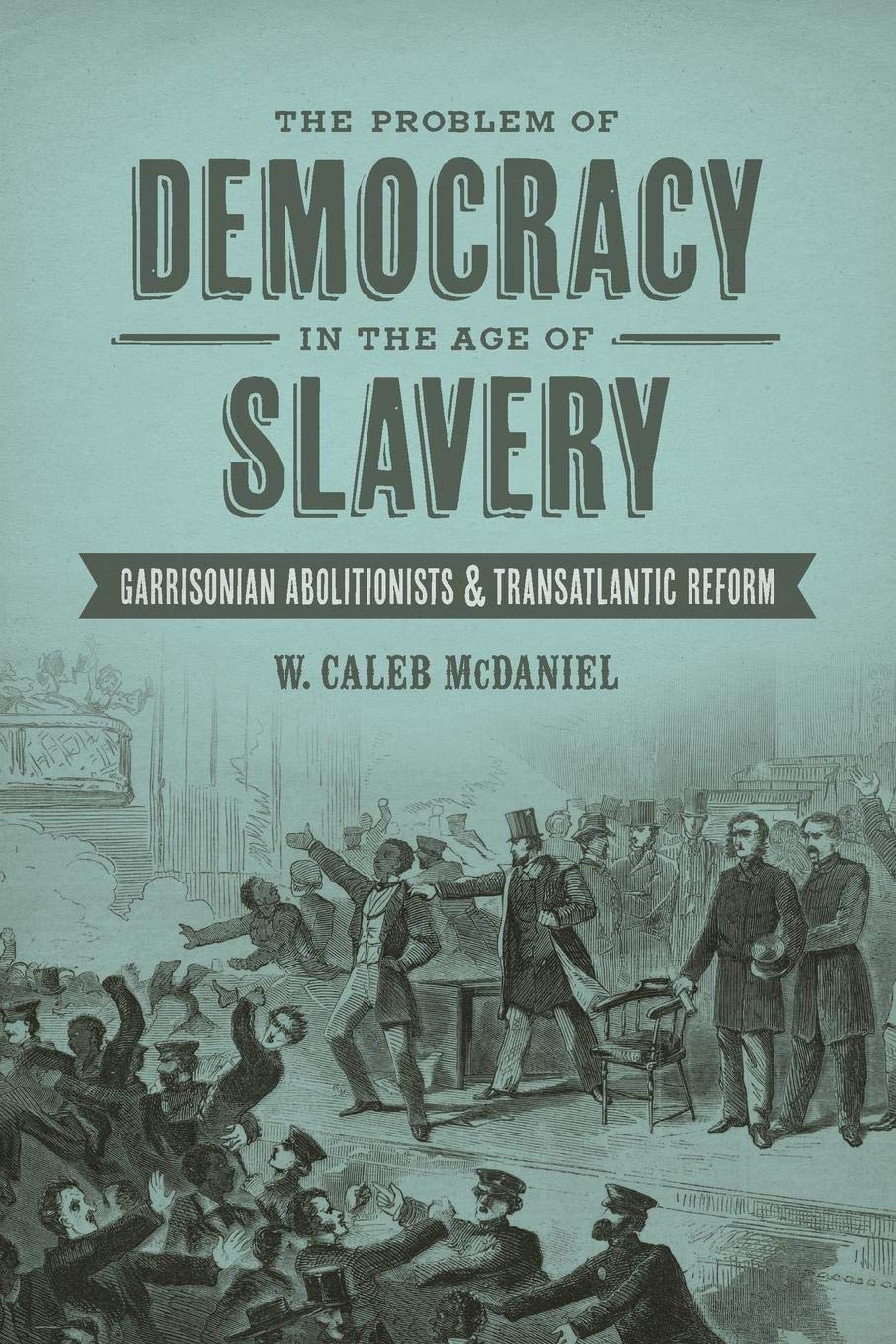
The Problem of Democracy in the Age of Slavery
Garrisonian Abolitionists and Transatlantic Reform
An award-winning reinterpretation of American antislavery activists as cosmopolitan theorists of democracy.
Available for Purchase
Prizes
- Merle Curti Award from the Organization of American Historians
- James Broussard Prize from the Society for Historians of the Early American Republic
Description
As they fought against American slavery, nineteenth-century abolitionists like William Lloyd Garrison and Wendell Phillips joined Europeans like John Stuart Mill, Giuseppe Mazzini, and Alexis de Tocqueville in complex, related debates about democracy, nationalism, and the nature of “public opinion.” These debates and their own experiences as transatlantic reformers led Garrisonian abolitionists to believe that constant agitation and cosmopolitan ideals were essential to democracy. By abolishing slavery and defending the freedom to dissent, they hoped to vindicate popular government itself on a global stage, but they also identified problems with democracy that would not be easy for them or their heirs to solve.
Media
- Read my invited post about the book on the Atlantic blog of Ta-Nehisi Coates.
- Listen to my interview about the book on New Books in American Studies.
Reviews
This insightful study will be read profitably by seasoned scholars as well as those new to the field of abolitionist studies. . . . This reviewer learned a great deal from McDaniel’s careful, rich, and wide-ranging study, especially on the international dimensions of democratic and abolitionist reform.
This important volume brims with insights that are often delivered with unusually good turns of phrase. W. Caleb McDaniel’s ambitions include painting Garrisonians on a transatlantic canvas and stretching that canvas from the 1830s through the 1860s—both unusual moves within a distinguished and voluminous historiography. He is successful on both counts, and thereby sheds considerable light on both the abolitionist movement and William Lloyd Garrison himself.
Thoughtful and provocative. . . . I enthusiastically recommend The Problem of Democracy in the Age of Slavery to American intellectual historians. It is sophisticated in interpretation and broad in analysis, and is a reaffirmation that ideas really mattered in one of America’s most potent moments of history.
—Society for U.S. Intellectual History
W. Caleb McDaniel’s excellent account of Garrisonian abolitionists presents the antislavery crusaders as they saw themselves.
—Journal of the Early Republic
McDaniel has produced a well-written and engaging work that will undoubtedly enjoy a wide readership and spark debate.
McDaniel’s work will change the way scholars think about Garrison and his times. His book asks readers to understand the abolitionists as sophisticated intellectuals who refused to retreat from political problems. More importantly, it provides a broad transnational frame for understanding abolitionism, the origins of American antislavery, and, ultimately, the Civil War.
McDaniel’s book breaks valuable new ground by portraying Garrisonians in a different light and by carefully mapping the transatlantic web of abolitionism that placed them in the vanguard of nineteenth-century reform. It offers a substantial contribution to the historiography of antebellum reform and politics, international studies of slavery and the Atlantic world, and even American political theory and intellectual history.
—Journal of Southern History
Grounded in a thorough investigation of abolitionists’ public and private writings, this insightful monograph should find a wide audience among historians of abolition and reform, nineteenth-century political and intellectual historians, scholars of social movements, and historically minded democratic theorists.
McDaniel’s juxtaposition of slavery and democracy offers a distinctive contextual lens for understanding nineteenth-century reform movements. As he demonstrates quite clearly, much of the power of Garrison’s conviction and the real impetus to his decision to focus on influencing public opinion was a response to the undeniable reality that slavery was the most glaring violation of America’s democratic ideals.
Keenly aware of political events in Europe, particularly the forces of reaction, and the examples set by Irish Repeal and the Anti-Corn Law League, Garrisonians endorsed the virtues of eternal vigilance and, above all, agitation, as well as selfless co-operation and brotherhood. … Thoughtful and illuminating, McDaniel’s handling of these ideas is first-rate, successfully situating Garrisonianism within a democratic discourse that, if truth be told, was still very much in its infancy.
The Problem of Democracy in an Age of Slavery is a fine piece of scholarship that combines empirical detail, sure-handed interpretation, and clarity of purpose to underline the importance of an engaged and active citizenry in bringing about progressive change.
—American Nineteenth-Century History
Even for those immersed in the primary and secondary sources on radical abolition, McDaniel’s book will encourage readers to rethink the Garrisonians.
Anyone who seeks to understand the ideas that girded Garrisonian abolitionism, the interplay between reformers’ experiences and thinking, or the contested terrain of democratic thought and practice in the Civil War era must read McDaniel’s book.